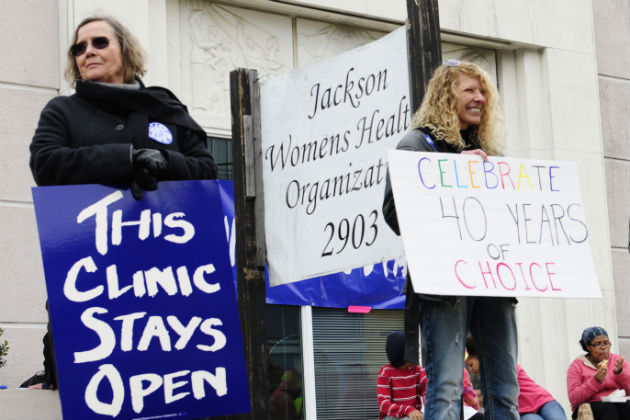
David P. Smith/Thinkstock
Mississippi’s sole abortion clinic, the Jackson Women’s Health Organization, has been on the brink of closure since 2012, when state legislators passed a law specifically designed to shut it down. On Monday, abortion rights advocates will argue before a federal court in a final attempt to block the law and keep Mississippi from becoming the first state in 41 years—since Roe v. Wade—to be without a single legal abortion provider.
And the odds don’t look good.
The law, HB 1390, requires abortion providers to have admitting privileges at a local hospital or face criminal penalties. Obtaining admitting privileges, however, poses an impossible burden, since most of Mississippi’s providers travel to Jackson from out of state and local hospitals have all refused to be associated with abortion.
Abortion rights advocates have managed to keep the doors of the Jackson Women’s Health Organization open since 2012 through a series of court battles. In summer 2012, a judge blocked the law’s penalties from going into effect while providers begged local hospitals to give them admitting privileges. In April 2013, after all seven local hospitals turned the clinic’s doctors down, a federal judge blocked the relevant part of the law, saying that it would “result in a patchwork system where constitutional rights are available in some states but not others.”
But the US Court of Appeals for the Fifth Circuit, which is hearing arguments from lawyers for the Jackson Women’s Health Organization, is likely the end of the line. Short of intervention from the US Supreme Court, a three-judge panel for the Fifth Circuit will have the final word on whether Mississippi’s law will take effect.
And the court has not been friendly to abortion rights in the past. The Fifth Circuit is the same venue where a three-judge panel upheld a very similar Texas law, made infamous by state Sen. Wendy Davis’s filibuster, in March. Appeals courts in the Fourth and Eighth Circuits have upheld admitting privilege laws, too.
In the years since HB 1390 passed, the Jackson Women’s Health Organization did not fail to get admitting privileges for lack of trying. (The health clinic already had a patient-transfer agreement with an area hospital for rare cases in which a patient required hospitalization.) As Mother Jones detailed in 2012:
The doctors’ applications have been rejected by every hospital they’ve approached. Two hospitals wouldn’t let them apply at all. Five others denied the applications for “administrative” reasons, before even completely reviewing the doctors’ qualifications. Their rejection letters cited their policies regarding abortion and “concern about disruption to the hospital’s business within the community.” The clinic wrote follow-up letters to make sure the hospitals understood that the doctors were only seeking privileges to comply with the new law and wouldn’t actually be providing abortions at the hospital, but no dice.
The problem isn’t just that hospitals don’t want to become targets for anti-abortion protests. Abortion clinics simply don’t admit enough women to hospitals to meet the usual requirements for admitting privileges.
“Women across the state will be plunged back into the dark days of back-alley procedures that Roe was supposed to end” if HB 1390 goes into effect, Julie Rikelman, the attorney for the Jackson Women’s Health Organization, said Monday. “The devastating impact of this unconstitutional law couldn’t be clearer.”















